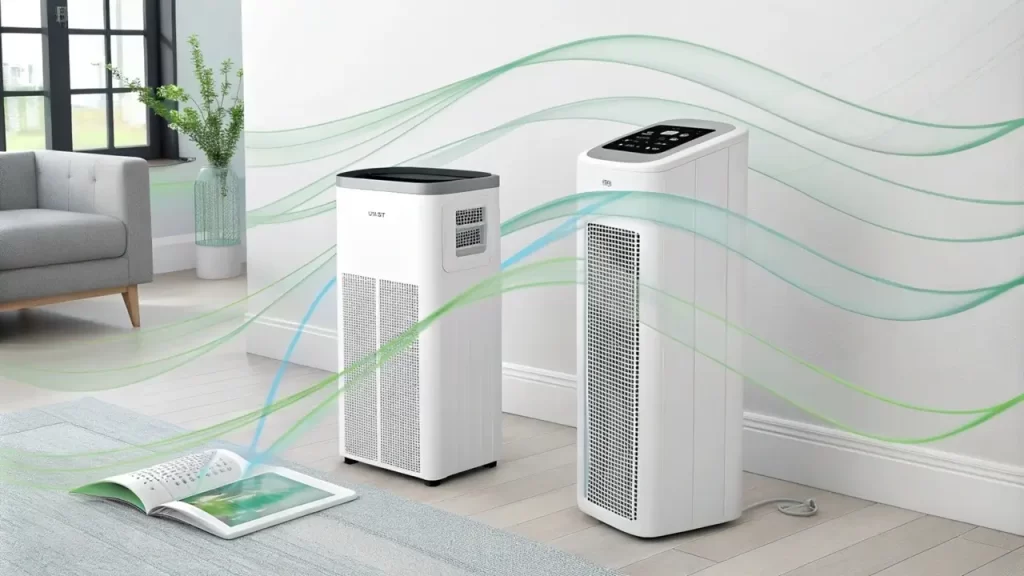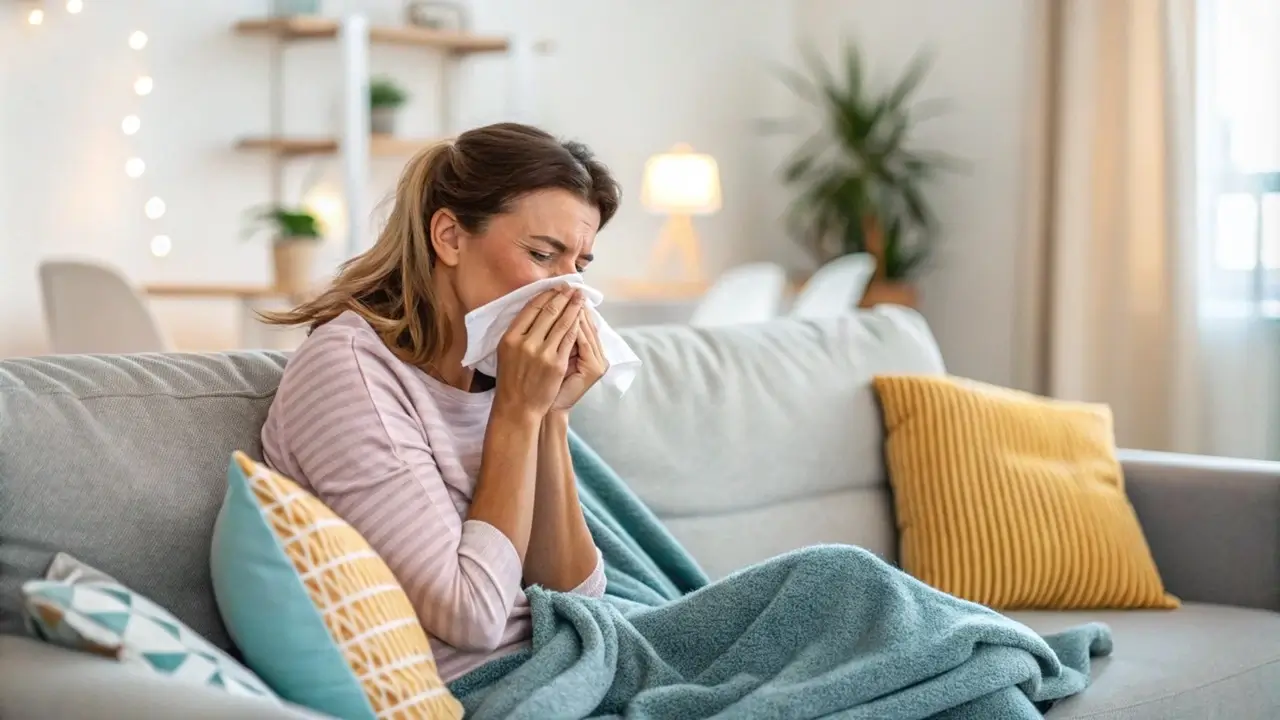Winter allergies affect nearly 30% of Americans, causing discomfort during the coldest months of the year. While many believe allergies only strike during spring and summer, cold weather allergies can be equally challenging to manage.
I’ve observed that indoor allergens become more concentrated during winter months when windows stay closed and heating systems circulate irritants throughout our homes. Understanding and treating these winter allergies is crucial for maintaining quality of life during the cold season.
Why Winter Allergies Hit Different
Ever notice how your allergies seem worse when you’re cozied up indoors? You’re not imagining it. When we shut ourselves in for winter, we’re trapping ourselves with some pretty pesky roommates – dust mites, pet dander, and mold spores. These tiny troublemakers can cause just as much havoc as spring pollen, if not more.
And here’s something most people don’t realize: your warm, toasty home is a perfect breeding ground for these allergens. That magical winter wonderland outside might look pristine, but inside, it’s allergen party central.
10 Effective Treatment Options for Winter Allergies
1. HEPA Air Purification Systems – Your New Best Friend

HEPA filters are like bouncers for your air – they kick out 99.97% of unwanted airborne particles larger than 0.3 microns.
Ever wondered why some rooms make you sneeze more than others? Place these bad boys in your bedroom and living room, and you’ll notice the difference within days.
2. Humidifier Therapy – The Moisture Magic
Think of your humidifier as your indoor weather controller. Keeping humidity between 30-50% isn’t just about comfort – it’s your first line of defense against allergens.
Just remember to clean it regularly, or you might end up with a mold-growing machine instead of an allergy helper.
3. Deep Cleaning – The Weekly Warrior
Listen, I know vacuuming isn’t anyone’s favorite weekend activity, but your lungs will thank you for running that HEPA-filtered vacuum twice a week.
Those dust bunnies under your bed aren’t just collecting dirt – they’re hosting an allergen convention.
4. Antihistamine Medications – The Modern Marvel
Gone are the days when allergy meds would knock you out cold. Today’s second-generation antihistamines are like ninja warriors – they fight your allergies without making you feel like a zombie.
Just remember to take them regularly during allergy season for the best results.
5. Nasal Irrigation – The Sinus Savior
Yes, running water through your nose sounds weird at first. But this ancient practice is like a power wash for your nasal passages.
Pro tip: use warm (not hot!) distilled water, and you’ll be amazed at how much better you can breathe.
6. Allergen-Proof Bedding – Your Nighttime Shield
Your bed should be your sanctuary, not an allergen trap. Those special covers aren’t just marketing hype – they do create an effective barrier against dust mites.
Consider this: you spend about a third of your life in bed. Shouldn’t it be as allergen-free as possible?
7. Indoor Air Quality Monitoring – The Tech Solution
Smart air quality monitors are like having a tiny environmental scientist in your home. They can alert you before your allergies even know what hit them.
Use these readings to know exactly when to step up your air purification game.
8. Immunotherapy – The Long Game
Think of allergy shots or sublingual tablets as training camps for your immune system. They teach your body not to overreact to allergens.
Yes, it takes time, but the long-term relief is worth the commitment.
9. Natural Supplements – The Support Squad
Quercetin and vitamin C are like your body’s natural antihistamines. While they won’t replace your regular meds, they can provide that extra boost your immune system needs.
Remember to check with your doctor first – natural doesn’t always mean risk-free.
10. Professional Duct Cleaning – The Deep Clean
Your heating ducts are like your home’s lungs. Every 3-5 years, they need their version of a deep breath to clear out accumulated allergens.
Schedule this service before winter hits – your sinuses will thank you.
Preventive Measures That Work
Creating an allergen-free zone doesn’t have to be complicated. Here’s what you can do:
Give your furry friends regular spa days – less dander means less sneezing.
Make monthly furnace filter changes your new habit.
Consider this your permission to be a clean freak – at least when it comes to dust and allergens.
The Bottom Line
Living with cold-weather allergies isn’t just about surviving—it’s about thriving through the winter months. By implementing these 10 cold-weather allergy treatments, you can transform your home from an allergen battlefield into a cozy, breathable haven.
Remember, everyone’s allergy journey is different. Mix and match these treatments until you find your perfect combination. Your winter comfort is worth the effort!
Frequently Asked Questions
How can I tell if it’s allergies or just a cold?
Allergies typically come with itchy eyes and nose, while colds usually bring body aches and fever. Allergies also tend to last longer than the typical 7-10 day cold.
Why do my allergies seem worse at night?
Dust mites love your warm bed as much as you do! Plus, lying down can make congestion feel worse. Try elevating your head while sleeping.
Can cold weather allergies trigger asthma?
Absolutely! Indoor allergens can be powerful asthma triggers. If you have both conditions, work with your doctor to create a winter management plan.
Do air purifiers really help with winter allergies?
Yes, but you need the right type and size for your space. HEPA filters are your best bet, especially in bedrooms and living areas.
How often should I wash my bedding to reduce allergens?
Hot water washing every 1-2 weeks is ideal. Remember to include pillowcases, duvet covers, and even decorative pillows in your washing routine.
Can stress make my winter allergies worse?
Yes! Stress can amplify your body’s allergic responses. Consider stress management techniques as part of your allergy management plan.




Leave a Reply